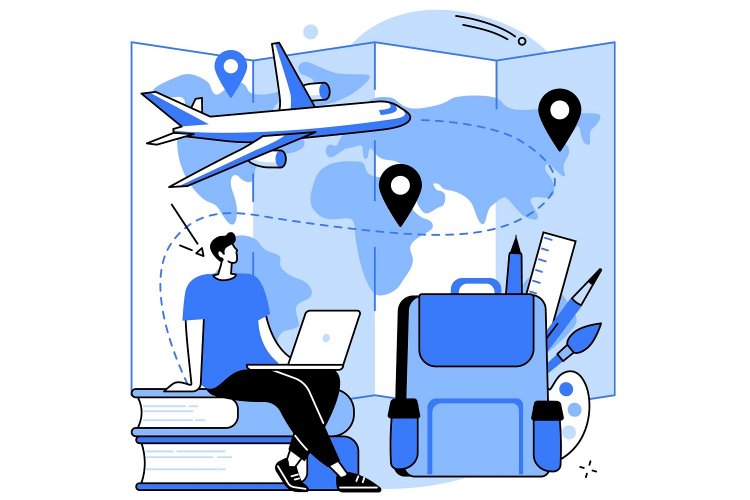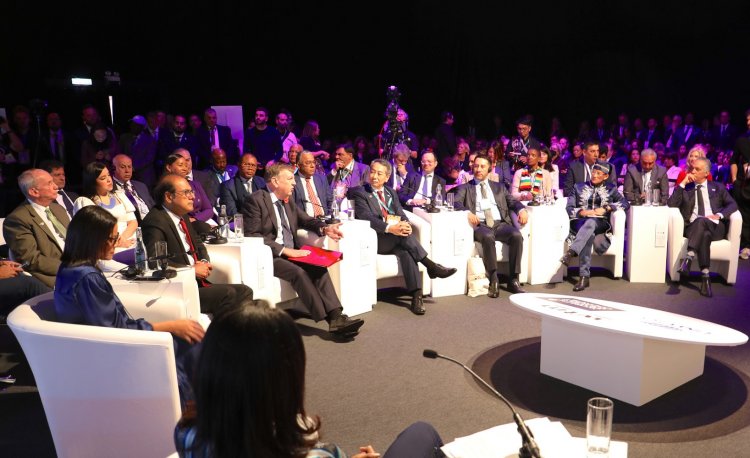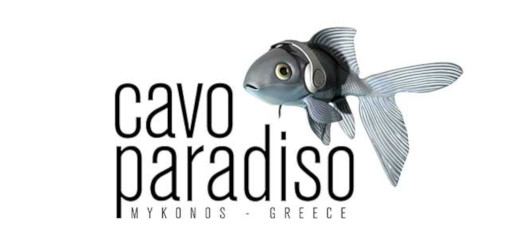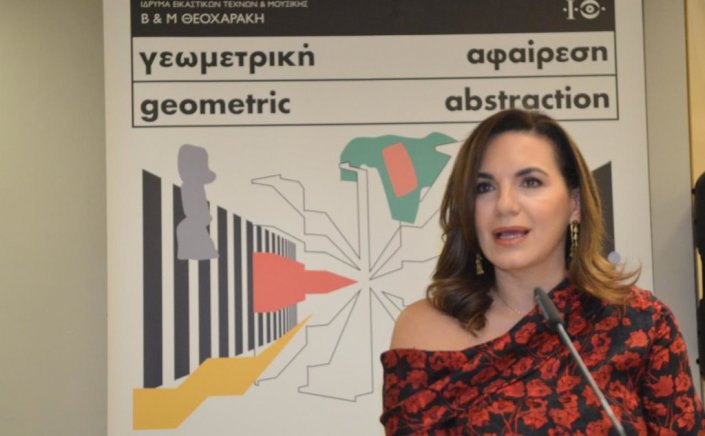Tourism Education the Focus of UNWTO: Καλύτερος Τουρισμός, μέσω της εκπαίδευσης και της ενδυνάμωσης των νέων!!
Tourism Education the Focus of UNWTO / Καλύτερος Τουρισμός, μέσω της εκπαίδευσης και της ενδυνάμωσης των νέων!!

Tourism Education the Focus of UNWTO / Καλύτερος Τουρισμός, μέσω της εκπαίδευσης και της ενδυνάμωσης των νέων!!
Ο τουρισμός είναι μία δραστηριότητα που αφορά σε όλες τις χώρες και περιοχές του κόσμου.
‘Όπου υπάρχει γη και θάλασσα, υπάρχουν και ταξιδιώτες. Μετά την πανδημία, δε, που οι άνθρωποι φαίνεται να εκτίμησαν περισσότερο την αξία της υγείας, της ελεύθερης μετακίνησης και της δημιουργίας θετικών εμπειριών, ο πολυσύνθετος τομέας του τουρισμού επωμίζεται μία ακόμη μεγαλύτερη «ευθύνη» ικανοποίησης των ταξιδιωτών, αλλά και συνεισφοράς στις κατά τόπους κοινωνίες.
Ο τουρισμός ως μάθημα γυμνασίου
Θεμέλιο όλων των δραστηριοτήτων, ωστόσο, είναι η εκπαίδευση. Σε αυτό συνηγόρησαν και οι 40 υπουργοί τουρισμού διαφόρων χωρών, που έδωσαν το παρόν στη μεγαλύτερη σύνοδο κορυφής του Παγκόσμιου Οργανισμού Τουρισμού που έχει καταγραφεί έως σήμερα, στη διεθνή έκθεση τουρισμού και ταξιδιών WTM London. Στο πλαίσιο των συζητήσεων, επισημάνθηκε ότι, άμεσος στόχος των ηγετών του κλάδου, θα πρέπει να είναι η εκπαίδευση και η ανάπτυξη δεξιοτήτων, καθώς για να υπάρξει καλύτερος τουρισμός, θα πρέπει να προηγηθεί καλύτερη εκπαίδευση.
Προς αυτή την κατεύθυνση, εντυπωσιακά είναι τα στοιχεία του Π.Ο.Τ., τα οποία αναφέρουν ότι υπάρχουν παγκοσμίως 1,2 δισ. άνθρωποι ηλικίας από 15 έως 24 ετών, για τους οποίους ο τουρισμός μπορεί να καθιερωθεί ως κορυφαίος εργοδότης, ενδυναμωτής και οδηγός τους. Ωστόσο, σύμφωνα με το Γραφείο Οικονομικής Συνεργασίας και Ανάπτυξης, ΟΟΣΑ, περίπου το 10% των εν λόγω νέων είναι άνεργοι και το 14% αυτών, κατέχουν μόνο βασικά προσόντα.
Για να βοηθήσει κατ’ αρχήν στην αντιμετώπιση των εκπαιδευτικών ελλείψεων, ο Π.Ο.Τ. έθεσε σε λειτουργία την Εκπαιδευτική Εργαλειοθήκη, η οποία θα επιτρέψει στις χώρες να εισαγάγουν τον τουρισμό ως μάθημα γυμνασίου.
Παράλληλα, το πτυχίο Bachelors στη Διαχείριση Αειφόρου Τουρισμού που προσφέρεται από τον Π.Ο.Τ. και το Πανεπιστήμιο Εφαρμοσμένων Επιστημών και Τεχνών της Λουκέρνης, θα υποδεχθεί το 2024 τους πρώτους φοιτητές του. Επί του παρόντος, υπάρχουν 30 πανεπιστήμια σε όλο τον κόσμο, τα οποία συνεισφέρουν περιεχόμενο στη Διαδικτυακή Ακαδημία του Π.Ο.Τ.
Πώς όμως αντιμετωπίζονται σήμερα οι εκπαιδευτικές ελλείψεις από τις χώρες και ποια είναι τα σχέδιά τους για την ενδυνάμωση της τουριστικής εκπαίδευσης; Οι υπουργοί της Νότιας Αφρικής, της Αιγύπτου, των Φιλιππίνων και της Ιορδανίας, κατέστησαν σαφή τη σημασία της υποστήριξης της εκπαίδευσης σε κάθε στάδιο. Για παράδειγμα, η Νότια Αφρική ξεκίνησε ένα μετοχικό ταμείο τουρισμού για να γεφυρώσει το χάσμα μεταξύ των δεξιοτήτων των μαθητών και των αναγκών των εργοδοτών, ενώ στις Φιλιππίνες, η τουριστική εκπαίδευση εκτείνεται από το γυμνάσιο έως τα επαγγελματικά πτυχία. Ταυτόχρονα, η Ιορδανία εργάζεται για να ενισχύσει τις ικανότητες των εργαζομένων στον τουρισμό, συμπεριλαμβανομένων των γλωσσικών δεξιοτήτων.
Ο Μαυρίκιος από την άλλη, σημείωσε ότι όλες οι λιγότερο ανεπτυγμένες χώρες επλήγησαν σκληρά από την πανδημία και αντιμετωπίζουν μια μεγάλη πρόκληση στην ενίσχυση των ποσοστών αλφαβητισμού και αριθμητικής, ενδεχομένως με διμερή και πολυμερή υποστήριξη. Για τη Μάλτα, η νέα Κάρτα Δεξιοτήτων θα στοχεύει στην εξύψωση των επαγγελματικών προτύπων στον τομέα για καλύτερες προοπτικές σταδιοδρομίας για τους εργαζόμενους και υπηρεσίες για τους τουρίστες, ενώ η Ινδονησία θα δώσει προτεραιότητα στην καινοτομία και την προσαρμογή, καθώς θα δημιουργήσει 5 εκατ. θέσεις εργασίας στον τουρισμό την επόμενη δεκαετία.
‘Όπως αποδεικνύεται και από τις τοποθετήσεις των υπουργών, υπάρχει επείγουσα ανάγκη να γίνει ο τουρισμός ένας φιλόδοξος τομέας για τους νέους, με συμπράξεις δημόσιου-ιδιωτικού τομέα, κυρίως για την κάλυψη του σημερινού κενού δεξιοτήτων.

UNWTO Ministers Summit in London: Transforming Tourism Through Education and Youth Empowerment
UNWTO celebrated the biggest Ministers Summit on record as it brought tourism leaders together on the opening day of the World Travel Market in London to focus on education and skills development.
Welcoming a record 40 Ministers of Tourism, representing every global region and destinations of all sizes, UNWTO Executive Director Natalia Bayona underscored the vital importance of investing in education.
The Summit, hosted at WTM for the 17th time, also featured inputs from key private sector players and from co-organizer the World Travel and Tourism Council (WTTC).
Education for a better tourism
According to UNWTO with 1.2 billion people worldwide aged between 15 to 24, tourism can establish itself as a top employer of youth and driver of youth empowerment. However., according to the Office for Economic Cooperation and Development (OECD) around 10% of that demographic are unemployed and 14% hold only basic qualifications.
Outlining how UNWTO is leading the way in promoting tourism education, Executive Director Bayona emphasised the need to support education and skills development at every stage.
- UNWTO launched its Education Toolkit in October 2023. The landmark resource will enable countries everywhere to introduce tourism as a high school subject.
- The Bachelors Degree in Sustainable Tourism Management offered by UNWTO and the Lucerne University of Applied Sciences and Arts will welcome its first students in 2024.
- Currently, 30 universities worldwide contribute content to the UNWTO Online Academy. And on the ground, the Riyadh School of Hospitality and Tourism in Saudi Arabia and the Tourism Academy in Samarkand, Uzbekistan, train thousands of tourism professionals.
Ministers share education policies
The United Kingdom's Minister for Tourism, Sir John Whittingdale, stressed the importance of platforms like the Ministers Summit to provide a dialogue on how different countries are tackling common challenges, including advancing tourism education. With more than double the number of Ministerial-level participants than 2022 highlighting the strong interest in the topic, participants shared their insights on the place of education in the future of tourism.
- The Ministers of South Africa, Egypt, the Philippines and Jordan all made clear the importance of supporting education at every stage. For example, South Africa has launched a tourism equity fund to bridge the gap between student skills and employer needs, and in the Philippines , tourism education extends from high school to vocational degrees. At the same time, Jordan is working to boost the abilities of tourism workers, including in language skills.
- The Ministers from Mauritius, Malta and Indonesia stressed the vital need to upskill new and existing tourism workers. Mauritius noted that all Least Developed Countries were hit hard by the pandemic and face a challenge to boost literacy and numeracy rates, potentially with bilateral and multilateral support. For Malta, a new Skills Card will aim to elevate professional standards in the sector for better career prospects for workers and service for tourists, while Indonesia will prioritise innovation and adaptation as it creates 5 million tourism jobs in the next decade.
- Highlighting the vital importance of education for tourism sustainability, the Minister for Colombia outlined how the sector is bringing peace, jobs and youth opportunity to areas afflicted by insecurity, while Ethiopia shared its work investing in young people as well as in tourism infrastructure.
Alongside the Ministerial voices, the private sector was represented by leaders from Riyadh Air and JTB (Japan Tourism Bureau) Corp. They echoed the Ministers' focus on the importance of public-private partnerships, stressing that governments need to work with businesses to ensure training meets the needs of employers.
Ministers takeaways from Summit
On the back of the expert inputs from tourism leaders from every global region, Ministers were able to take away key lessons from the London Summit. Chief among them was the shared nature of the challenges facing destinations everywhere, with a common need for more and better-skilled workers.
Concluding, UNWTO Executive Director Natalia Bayona noted the urgent need to make tourism an aspirational sector for young people everywhere, with public-private partnerships essentially for bringing the current skills gap in the sector.



















![Καλά Κούλουμα και Καλή Σαρακοστή!!! [Video]](https://www.mykonosticker.com/uploads/images/2021/05/image_380x226_608ed797a99a4.jpg)








